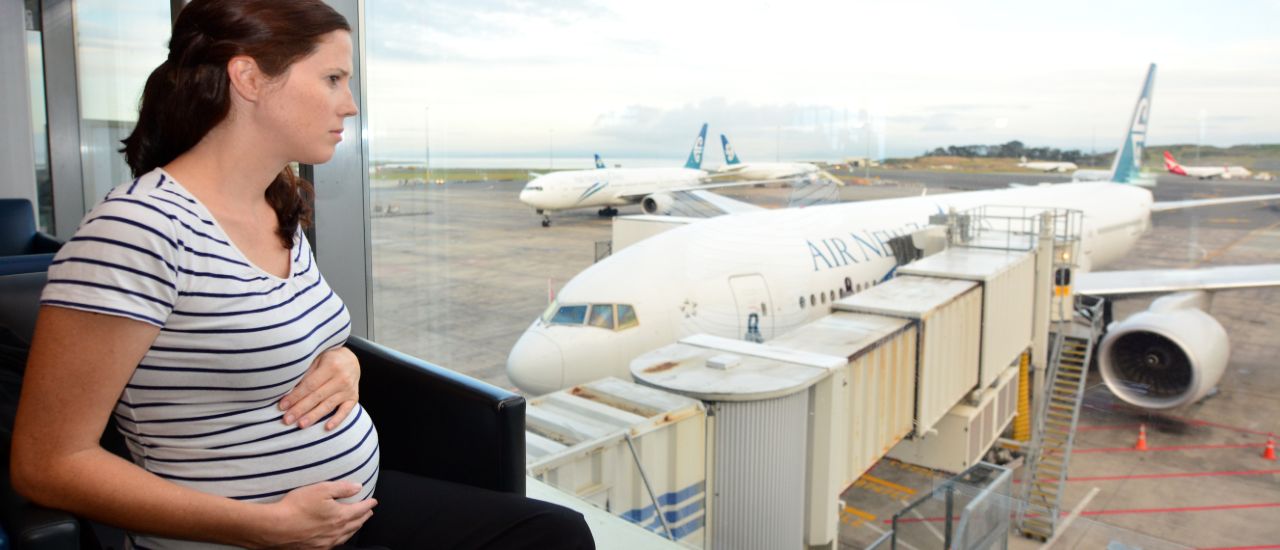Air Travel During Pregnancy
Air travel during pregnancy is a major concern. There are many reasons why pregnant women may need to travel. It can be for business, vacations or emergencies and they must be prepared for the challenges so that everything goes smoothly. It is considered risky because of pre-term labor and caution must be taken. Generally air travel during pregnancy can be considered to be safe only for women who have healthy pregnancies, but still it is best to get the check up done by the gynecologist especially, if you have had medical problems like diabetics, high blood pressure, morning sickness, previous miscarriage. The best time to fly can be in the middle of the pregnancy about 14-28 weeks but after 36 weeks, travel is generally restricted. During these months, you are at your best because of lower risk of miscarriage and pre mature labor. Nowadays, certain airlines provide policies for long distance travel for pregnant women to prevent exhaustion. Also, air travel is not allowed if the lady is pregnant with twins or multiples after week 32. Medical clearance is provided only when no complication is expected in the delivery. So, wherever you go, it is important to take proper precaution and vaccinations and to be armed with information on when to travel. It is a good idea to find out information about the health care facilities at the destination place in case of urgent medical attention. If necessary, medical records can also be taken along. There might be concerns among pregnant women regarding the harm to their baby while travelling. It’s even more difficult for women who are already carrying one more baby. Also, air travel should not be very frequent during pregnancy. Before travelling you should check with the airline policy and insurance company that they will allow you to travel while pregnant. After week 28, most airlines require a letter confirming that you are in good health that you are going to have a normal pregnancy and the expected date of delivery. When you fly, exposure to natural radiations can increase the risk of abnormalities particularly when you are travelling very frequently.
Certain tips that can help pregnant women to have a healthy and comfortable flight are
- Drink plenty of water to stay hydrated regularly after every 30 minutes or so because the cabin has very little moisture.
- Don’t sit still for a long time. Walk around when possible. Do some simple exercises. Bend and straighten your legs. This will really help to reduce stiffness or swelling and will keep the blood flowing. You can even roll your shoulders and your neck for more stretching.
- Wear loose and comfortable clothing and slip off your shoes to prevent your feet from swelling.
- Adjust your seat belt so that belt lies below your bump.
- Before the flight, find out if you need to take medication.
- Pack well in advance.
- If you have a history of travel sickness, read about helpful self care techniques or take medication.
- If you have a risk of developing thrombosis, wear compression stockings during your flight.
- Get plenty of sleep before your flight. Book train, bus tickets prior to get to the airport.
- Avoid alcohol or caffeinated drinks because they make you thirstier.
- Wear glasses instead of contact lenses because dry air can be irritable.
- To prevent jet lag, try sleeping during the flight.
- Request additional courtesies of the airline staff and don’t hesitate to let them know about your pregnancy especially when selecting a seat. For instance, the seat near the rest room can be convenient for frequent trips to the toilet, while a seat in the front can provide a lot of extra space. You can even ask for assistance for pick up or escort through the wheel chair and also for loading your bags which should be kept light enough to be carried without struggle.
- On long flights, hot towels, eye mask are also available. You can always carry comforting neck pillow and healthy snacks. Keep eating even if you are not hungry. Take a healthy diet and keep in mind the foods to be avoided. It’s important to just relax and enjoy the trip.
There is a myth about the security scanners that are believed to harm the baby but actually when you pass through it, it is just a metal detector which is of no harm. Also, the cabin pressure doesn’t really affect the baby but there can be a problem while flying in a small plane because there is less oxygen. So, all these things can really be helpful for a comfortable journey.
After your flight, on reaching your destination, you should think about certain points:
- If you need any medical help, look around for heath care in advance.
- If you are feeling dizzy or exhausted, wait and rest in rest room at the airport itself.
- Try to remain calm and patient.
So, it can be concluded that plane travel during pregnancy is not easy but with preparations and complete knowledge, the whole process can go very smoothly. There is a need to be sufficiently informed, for the protection and safety of women and unborn babies by the women themselves and their family members and doctors.
Please note: The opinions expressed in this post are the personal views of the author. They do not necessarily reflect the views of mycity4kids. Any omissions or errors are the author's and mycity4kids does not assume any liability or responsibility for them.



